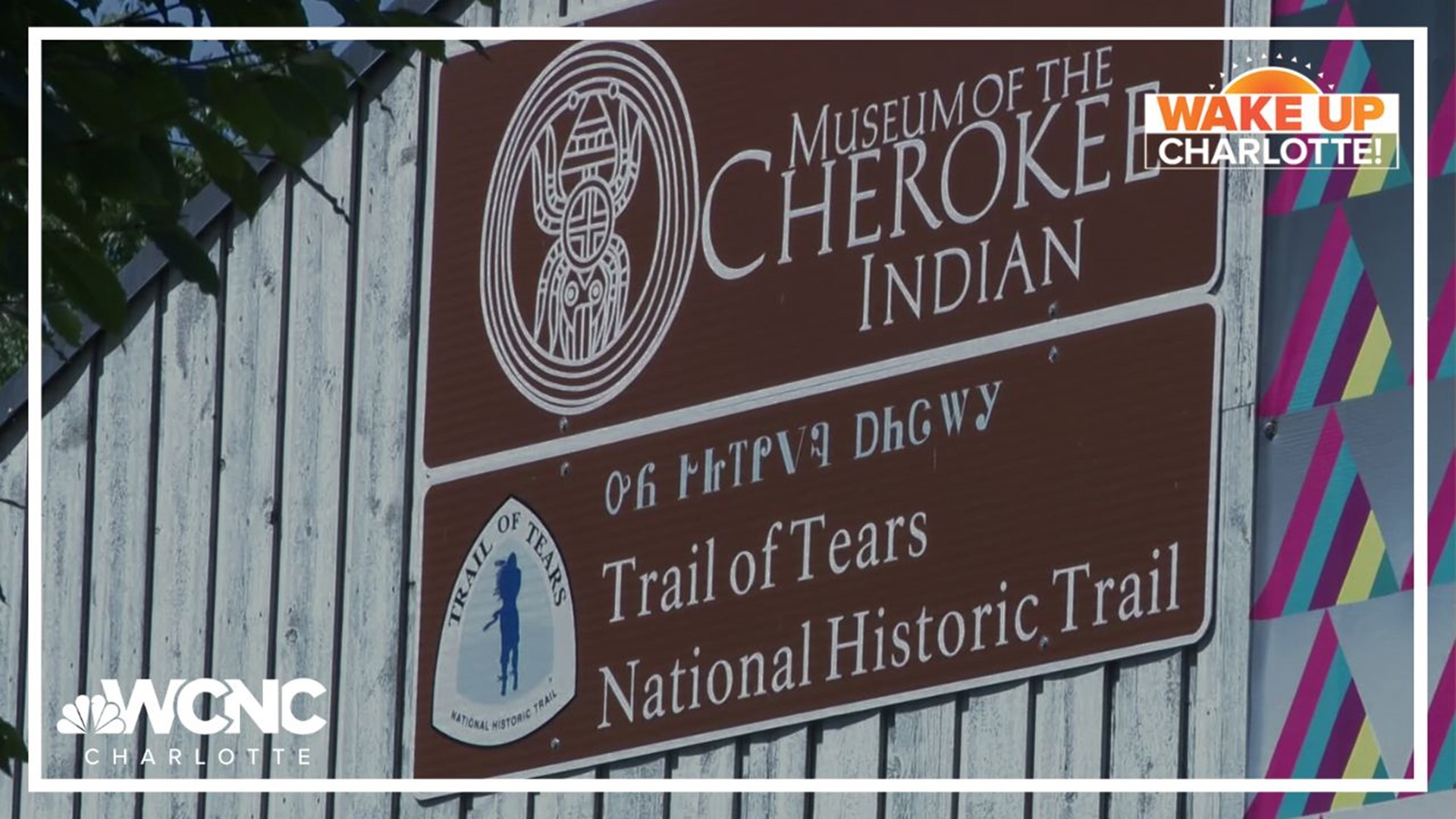CHEROKEE, N.C. — Founded in 1948, the Museum of the Cherokee Indian is one of the oldest tribal museums in the U.S., and for the first time since 1998, the museum is getting a major renovation. It's also getting a name change.
"It's a privilege and an honor to be on our ancestral homelands and we feel fortunate every day that we do have that responsibility," Shana Bushyhead Condill, the museum's executive director, told WCNC Charlotte. "But we want to make sure that folks in the world understand that we are one people."
With three federally recognized Cherokee tribes, Condill said the museum will now be known as the Museum of the Cherokee people. The three recognized tribes are the Eastern Band of Cherokee Indians, based in Cherokee, as well as the United Keetoowah Band in Tahlequah, Oklahoma, and the Cherokee Nation, the largest tribal government in the U.S., which has more than 360,000 citizens.
"For us, it's important to make sure that even though we are the tribal museum or the official repository of the Eastern Band of the Cherokee Indians, that all of our stores originate here," Condill said. "We are all of this place. As Cherokee Nation, United Keetoowah Band and Easter Band citizens, we are all of this place."
According to the Cherokee Nation, upon settling in Indian Territory (present-day Oklahoma) after the Indian Removal Act, the Cherokee people established a new government in what is now the city of Tahlequah. The journey is known as the Trail of Tears. It is said more than 10,000 Native Americans died during removal.
With a new name, the Museum of the Cherokee People want this to be a home to all three tribes, but they want the 83,000 visitors to know this is a museum of a living people.
"We're not just a natural history museum. We're not just a history museum. We're not just an art museum," Condill explained. "We're trying to tell a story of a people that, you know, we're still here. We're 1% to 2% of the population. Most people, most Americans, don't ever meet a native person. And so when they do, it's sort of surprising. People don't have a clear idea of what contemporary Cherokee people are today."
Dakota Brown, the museum's education director, wants to change that narrative.
"When folks don't realize that you exist as a people, and as a nation, it's hard to have in-depth conversations about what kind of issues we have in our community, or what kind of wonderful things happen in our community," Brown said. "Being able to learn about the effects of trauma in our community, and see how things that happened 100 years ago, or even 200 years ago, still affect us today, and the community and the way that we function as a community, the way that our government functions, the way that we function with our government, and the way that we live as individuals and people."
WCNC Charlotte's Sarah French will have more stories coming up for Native American Heritage Month in November. French is a member of the Cherokee Nation.
Contact Sarah French at Sarah@wcnc.com and follow her on Facebook, Twitter and Instagram.

